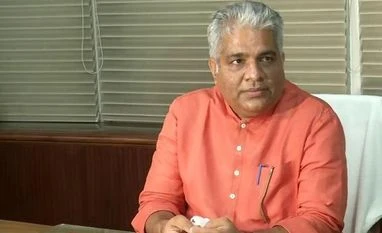Union Minister of Environment, Forest and Climate Change, Bhupender Yadav, conducted a detailed review on Friday of measures and actions planned for abatement of air pollution by all stakeholders concerned in the National Capital Region and adjoining areas, in the wake of poor air quality conditions generally prevailing during the period between October - January each year.
He highlighted key sectors that contribute to air pollution and are critical in the ensuing 3-4 months period. He emphasized that sources of air pollution such as paddy stubble burning, open biomass, municipal solid waste burning, industrial emissions and particulate matter, dust emissions from construction, demolition activities and roads, and open areas were directed to be focussed on concerted preventive and mitigative actions.
Union Minister Yadav directed for timely and effective implementation of various components of the detailed plan of actions, developed by the NCR States and Punjab, pursuant to CAQM Framework / Directions on the management of paddy stubble burning.
"Secretary, Ministry of Environment, Forest and Climate Change called upon Punjab to expand the coverage of area under Bio-Decomposer through pro-active action by the State Government, especially since a very marginal increase had been proposed in the coverage of area under Bio-Decomposer i.e. form 7,500 acres in 2021 to merely 8,000 acres in 2022," read an official statement.
Chairman, CAQM also emphasized the need for time-bound implementation of the action plan particularly by the State of Punjab. Optimal utilisation of available crop residue management machinery with the states was identified as a key factor toward effective management of stubble.
The extensive use of technology and mobile applications for mapping the demand and supply of such CRM machinery through the CHCs and cooperatives was emphasised during the meeting. It was also stressed upon enhancing the net of PUSA bio-decomposer application for in-situ management of the stubble.
Also Read
Towards ex-situ utilisation of paddy straw, various options are now being progressed including biomass power generation, bio-ethanol production, CBG production, co-firing in thermal power plants, fuel for industrial boilers and other misc. applications, composting, cattle fodder and misc. commercial applications in furnishing materials and packaging etc.
Progress on co-firing of biomass in thermal power plants has not been up to the desired levels and the Minister called for immediate corrective measures by Thermal Power Plants to substantially enhance co-firing.
Minister Bhupendra Yadav asked CAQM to utilize his statutory powers to take action against the defaulting power plants and also any other defaulting entities.
Bhupendra Yadav expressed his concern and dis-satisfaction with the preparedness of Punjab in taking concrete action on the ground towards Air Quality Management while pointing out that the State Government had not planned adequately for management of almost 5.75 million tons of stubble which is a huge gap and was likely to have an adverse impact on the air quality in Delhi and NCR region.
The Minister exhorted the need to switch over to clean fuels for industrial applications and directed for a quick transition to clean fuels as per the approved standard fuel list for NCR as directed by the CAQM. Controlling heavy pollution from a large number of diesel generator sets operating in NCR was also identified as a key action area and the Minister emphasised on strict implementation of restrictions on the use of DG Sets and emission control measures in this context.
The review highlighted the need for effective dust control measures in various anthropogenic activities, construction, demolition activities, roads and open areas. Effective utilisation and augmentation of mechanised road cleaning equipment, water sprinklers and anti-smog guns by NCR State Governments / GNCTD were also emphasized during the meeting.
Considering the criticality of air pollution-related matters including the weather conditions around the Diwali festival, the Minister directed special and timely measures to control the air pollution levels.
As air pollution in the region is a multi-dimensional and multi-sectoral phenomenon, spreading across geographical boundaries, the Minister reiterated the need for collective and concerted efforts of all the stakeholder agencies, and departments in the state governments and the public at large towards the abatement of air pollution in the region and to this effect directed that all directions, orders and guidelines of the CAQM , CPCB, State Pollution Control Boards be implemented in right earnest and critically monitored, reviewed periodically by the authorities concerned.
Senior officials from the Ministry of Environment, Forest and Climate Change including Secretary, Chairman, Commission for Air Quality Management (CAQM), Secretary in-charge in the State Govts. of Punjab, Haryana, UP and GNCT of Delhi, Chairman, Central Pollution Control Board, NCR State Pollution Control Boards, DPCC and other major stakeholders participated in the review meeting.
(Only the headline and picture of this report may have been reworked by the Business Standard staff; the rest of the content is auto-generated from a syndicated feed.)
)